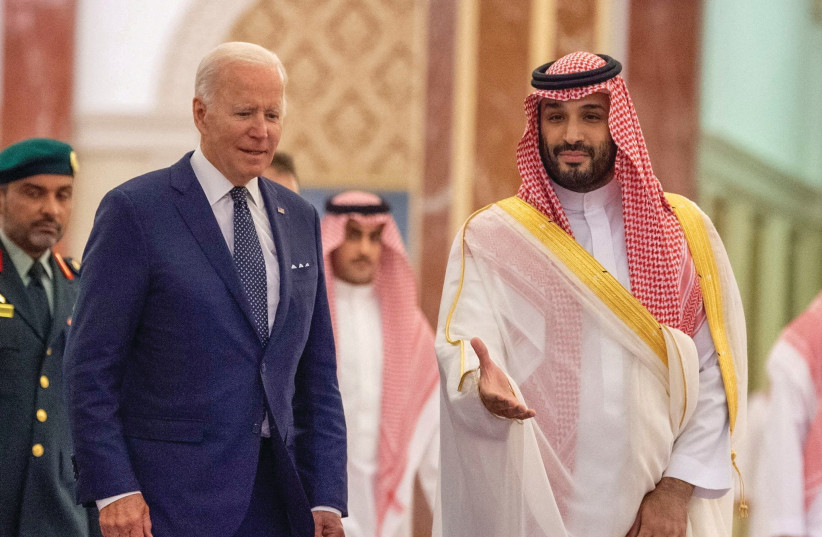Saudi Arabia's Prince Turki Al-Faisal emphasized that normalization between Israel and Saudi Arabia will not occur until a Palestinian state is established during a discussion at the UK think tank Chatham House on Friday.
Prince Turki Al-Faisal, the former head of Saudi Arabia's General Intelligence Presidency and former ambassador to the US, discussed the Israel-Hamas conflict and the US's efforts to resume talks on normalization for the sake of regional security and stability at the independent policy institute in London.
He reaffirmed Saudi Arabia’s stance: "If there’s a Palestinian state that Israel accepts to come into existence, then we can talk about normalization with Israel."
The prince added, “Before Oct. 7, those talks not only progressed along those lines, but the Kingdom also invited a Palestinian delegation to come and talk directly to the Americans about what might bring about a Palestinian state."
“I’m not privy to those talks, so I don’t know what happened between the Palestinians and the Americans, but the Kingdom’s position has always been - we will not speak for the Palestinians. They have to do it for themselves. Unfortunately, of course, October 7 (Hamas attack on Israel) ended those talks.”

He noted that both Saudi Arabia and the US have publicly expressed their desire to continue these talks, whether bilaterally on issues such as security and economic agreements or through the establishment of a Palestinian state, leading to normalization between Israel and not just Saudi Arabia but the entire Islamic world.
The US is not using its power
Prince Turki also criticized the US for not leveraging its influence to exert more pressure on Israel, including measures such as suspending weapons exports, withholding financial aid, or utilizing its global position to compel Netanyahu to take a certain course of action.
"A significant amount of financial assistance flows to Israel from the US. If some of the privileges that the Israeli lobby, for example, enjoys — like tax-free contributions to Israel — were to be withdrawn, that would exert significant pressure on Israel."
He expressed pessimism about the US taking stronger measures beyond harsh rhetoric, which, according to him, has yielded little progress.
Regarding the war with Hamas, the prince stated that only the people of Gaza have the authority and ability to stop Hamas and call for an end to the conflict. Neither Qatar nor Egypt can do so. They must hold onto the hope that the war is nearing its end.
